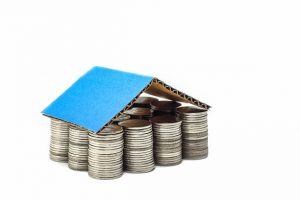Why Selling A Home After Just One Year?

Selling a home is a major decision, likely one of the biggest financial transactions a person will ever make. Most people tend to stay put after making such a commitment. U.S. homeowners typically remain in their homes for a median of 13 years, according to data from Redfin and the National Association of Realtors, a trend that has held steady since 2019. However, some homeowners may need to sell after just one year or even less.
If you find yourself needing to sell your home quickly, whether by choice or necessity, don’t stress. While it’s less common, it’s not unheard of. There are many options, including getting a fast cash offer from companies that specialize in buying homes. If you’re looking to sell your house fast, here’s everything you need to know about putting your home back on the market after just one year and how “we buy houses for cash” companies can help streamline the process.
Downsides of Selling Your Home Within the First Year
In most cases, no legal restrictions are stopping you from selling a home after owning it for less than a year. If you wanted to, you could put it back on the market right after closing. However, selling a home quickly, especially if you’re looking to get a cash offer or sell your house fast for cash can come with financial challenges.
For instance, if you sell your house for more than what you paid, you might be subject to capital gains taxes. These taxes can be significant depending on the profit and how long you’ve owned the house.
If you have a mortgage, you’ll also need to repay it in full, which may come with additional fees. And, as Realtor Amy Cherry Taylor of Amy Cherry Taylor & Associates in Fredericksburg, Virginia, points out, if you used a first-time homebuyer or grant program, you might owe a fee upon selling the property. Even with the option to “sell my house fast for cash” through companies that buy houses for cash like, and 99offers.io, these factors are important to keep in mind.
1- Capital gains and tax implications
Capital gains tax is likely to be one of the biggest expenses you’ll face when selling a home so soon after purchasing it especially if you’re aiming to sell your house fast for cash. Homeowners who have lived in their residence for at least 24 consecutive months often qualify for an exemption that can reduce their taxable gains to zero. However, as Amy Cherry Taylor points out, “capital gains tax will be owed if you have not [yet] lived in your primary residence for two years.”
If you’ve held the property for less than a year, short-term capital gains will be taxed as ordinary income, with rates as high as 37 percent. If you’ve owned the home for over a year but less than two years, long-term capital gains apply, taxed at special rates.
To calculate potential long-term capital gains, subtract the purchase price, selling costs, and any home improvements from the final sale price.
In 2023, if your net proceeds are under $44,625, you may not owe capital gains tax. Gains between $44,626 and $492,300 are taxed at 15 percent, while amounts above $492,300 are taxed at 20 percent. Also, consider taxes at your new location, especially if you’re moving to an area with higher property taxes. Even if you opt to get a cash offer through a “we buy houses for cash” company, these tax implications will still apply.
2- Mortgage Prepayment Penalties: What to Know Before Selling A Home
If you financed your home purchase, your lender might impose a prepayment penalty when selling a home so soon. “When selling a home after a year or less, a mortgage prepayment penalty may be charged, ranging from approximately 2 to 5 percent of the loan amount,” says mortgage broker Chris Allard of the Chris Allard Mortgage Team in Ottawa, Canada. “The minimum penalty is three months of interest, with a maximum of around 5 percent of the total loan amount.”
Most loans don’t include this penalty, according to Amy Cherry Taylor. However, it’s essential to review your specific mortgage details to ensure you aren’t subject to it. Even if you plan to get a cash offer or sell your house fast for cash, checking for any potential prepayment penalties is crucial.
3- Closing costs and moving expenses
In addition to tax challenges, selling a home often comes with the expense of moving, which can add up quickly. According to HomeAdvisor, the average move costs around $1,677, with long-distance moves being even more expensive.
On top of that, sellers need to factor in closing costs, which vary by state. In 2021, the national average for closing costs was just over 1% of the home’s sale price, according to data from ClosingCorp. For a $300,000 home, this means you’d be looking at paying a little over $3,000 in closing costs.
Exceptions
Some exceptions could help you avoid additional fees if you have said” Sell my house fast for cash” within the first year of ownership. These exceptions may apply in cases of hardship, such as job loss, divorce, or a death in the household. Additionally, military service can also qualify for an exception. If you’re considering selling your home quickly to get a cash offer, consult with an attorney to determine if you’re eligible for any of these exemptions.
Strategies for selling a home after a year
Moving within a year or less of buying a house is far from ideal, and it’s best to avoid it if possible. However, if you find yourself in this situation, explore options that can help you navigate this challenging scenario for selling a home effectively.
- Consider Waiting: Benefits of Holding onto Your Home for Two Years
If you can hold on to the home for at least two years, you’re likely to avoid paying costly capital gains taxes. Waiting might not seem feasible, but if you can rent out all or part of the property, the rental income could help cover the mortgage costs while you wait to sell the home and get a cash offer.
If you really need to sell your home to get a cash offer, consider having it professionally staged. Stagers are experts at highlighting a property’s best features, which can make it more attractive to buyers and potentially secure a higher selling price. As Allard points out, potential buyers may be wary if they notice you’ve only recently lived in the home, assuming there might be issues. Staging can help counter this perception by showcasing what made the home appealing to you initially.
Alternative selling platforms, for Selling A Home After Just One Year?
If you need to sell your home quickly, consider alternative selling platforms. Working with companies that say” We buy houses for cash” can expedite the process, as cash deals close much faster than those involving financing and lenders. Additionally, you might receive an instant online offer from an iBuyer, depending on your location.
While this approach may not yield as much money as a traditional sale, it will help me sell my house fast for cash and get the funds I need more quickly.
When You Need To Sell Your House Fast After a Year You Should Find a trusted real estate agent
When selling a home after owning it for less than a year, working with an experienced real estate agent is crucial. An agent skilled in handling unique situations can effectively navigate the market and address your specific needs.
“I have helped a number of clients sell their home in this exact scenario over the last couple of years,” Taylor says. The coronavirus pandemic in particular created new workplace conditions that have upended people’s plans: “We have seen many more people able to do this over the last two years due to market appreciation,” she adds. “There were not many markets prior to the ‘Covid market’ that allowed such quick appreciation.”
FAQs About The Reasons Why Selling A Home After Just One Year?
Can I still make a profit selling a home after a year?
Yes, it’s possible to make a profit from selling a home after just a year, but it can be challenging. For this to happen, home values would need to have increased significantly during that period. If they have, you’ll likely face capital gains tax on your profit. Additionally, the profit must cover not only the purchase price but also your closing costs and, if applicable, any prepayment penalties for settling your mortgage early.
Why would you sell your home right after purchase?
You might consider selling your home right after purchase if the neighborhood sees a sudden spike in demand and prices, or if you’ve made significant renovations that have increased its value. However, unless you’re a professional house flipper, this approach is risky and often financially unwise. Most people only sell so quickly due to emergencies, major life changes, or compelling job offers in other locations.
How long do you have to keep a house before selling it?
The ideal length of time to stay in a property before selling depends on how much it has appreciated and the equity you’ve built. To ensure you recoup all your investment including purchase costs, closing fees, real estate agent commissions, and mortgage interest, it’s best to reach the break-even point before selling. While there isn’t a definitive timeframe, many real estate experts suggest a rule of thumb of around five years.
Is there a penalty for selling your house early?
No. Selling a home early may lead to costs and taxes, but there’s no formal penalty like the early withdrawal penalty for retirement accounts. However, selling before a few years could lead to capital gains tax on profits, as you’ll only qualify for the IRS exemption if you’ve lived in the home for at least two of the past five years. Additionally, you might not recover expenses like closing costs, administrative fees, and mortgage interest, which are significant early on. Moreover, a quick sale might raise concerns among buyers about potential issues with the property.
What is the tax penalty for selling your house before two years?
It’s not so much a tax penalty as the loss of a tax benefit. If you sell your house, you’ll need to pay capital gains tax on any profit exceeding $46,000 for single taxpayers or $89,000 for married couples. Your profit is calculated by subtracting the cost of selling from the sale price and then deducting this amount from the adjusted basis of the property (the original purchase price plus any improvements). The IRS taxes the net proceeds at your ordinary income tax rate if it’s a short-term gain (within one year) or at a lower rate if it’s a long-term gain (over one year).
The key benefit is that if the home is your primary residence and you’ve lived in it for at least two years, you can claim a significant exemption: up to $250,000 in profits ($500,000 if married), which can effectively reduce your taxable capital gains to zero. However, if you sell before two years, you lose this exemption and may face higher taxes, effectively penalizing you for selling so soon.
Match for you
Sep 27, 2024
Selling your home without a Realtor in Texas is possible, but it’s a lot of work. While choosing the For Sale By Owner (FSBO) route can save you from paying a seller’s agent commission, you’ll still need to cover the buyer’s agent fee. You’ll be managing everything on your own from setting the price and […]
Sep 24, 2024
When you’re searching for a new home, you might come across properties in communities governed by a homeowners association (HOA). While some homeowners see HOAs as a way to maintain property values, others view them as restrictive something to consider if you’re planning to “sell my house fast for cash” or hoping to get a […]
Sep 18, 2024
Selling and Buying a Home at the Same Time can be a tricky situation to manage. Coordinating both transactions at the same time is often stressful, especially if you need the proceeds from your current home to fund the next purchase. In a perfect world, you’d be able to sell your current house and move […]
Match for you
How to use ChatGPT to create irresistible property presentations that will help you close more deals


